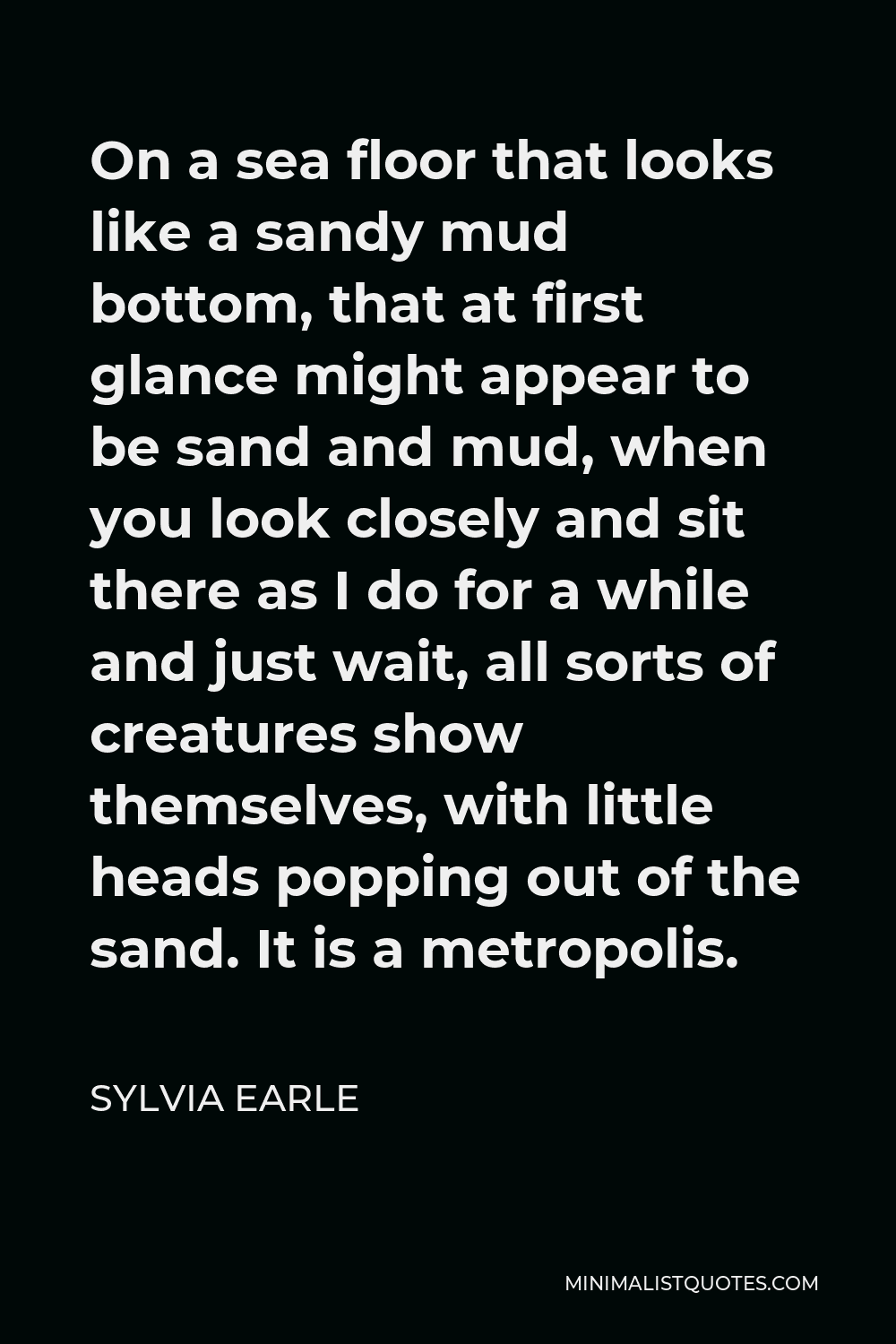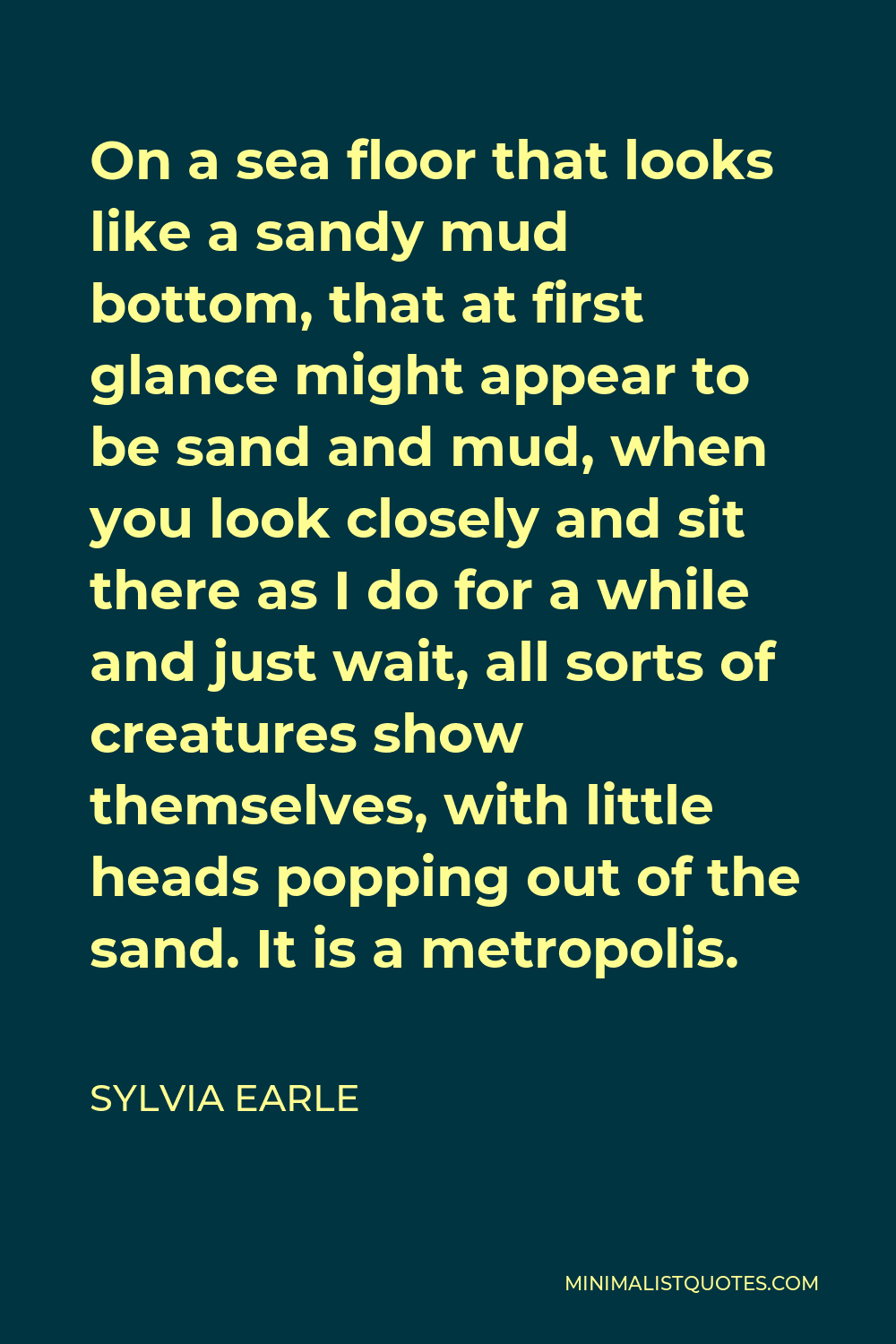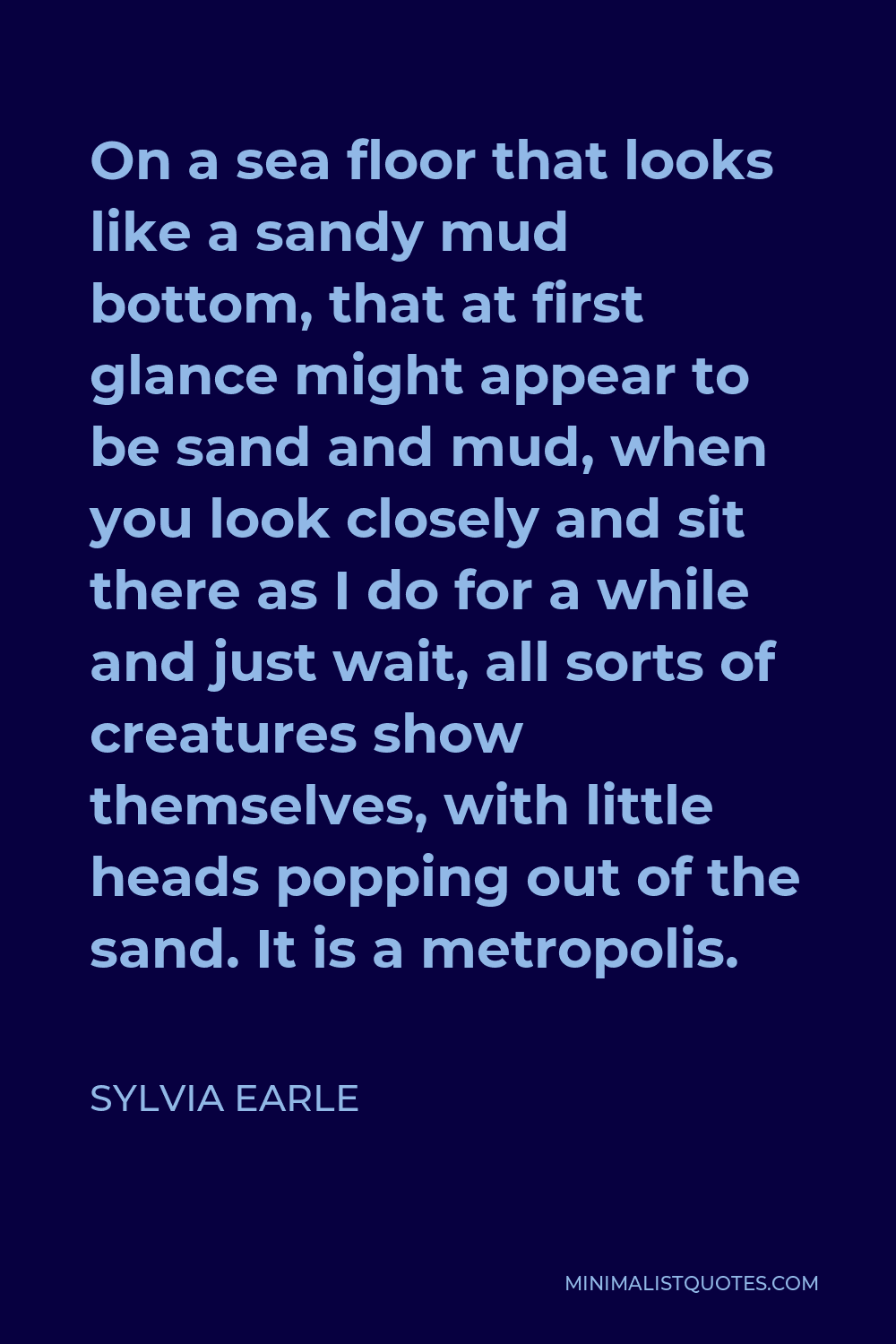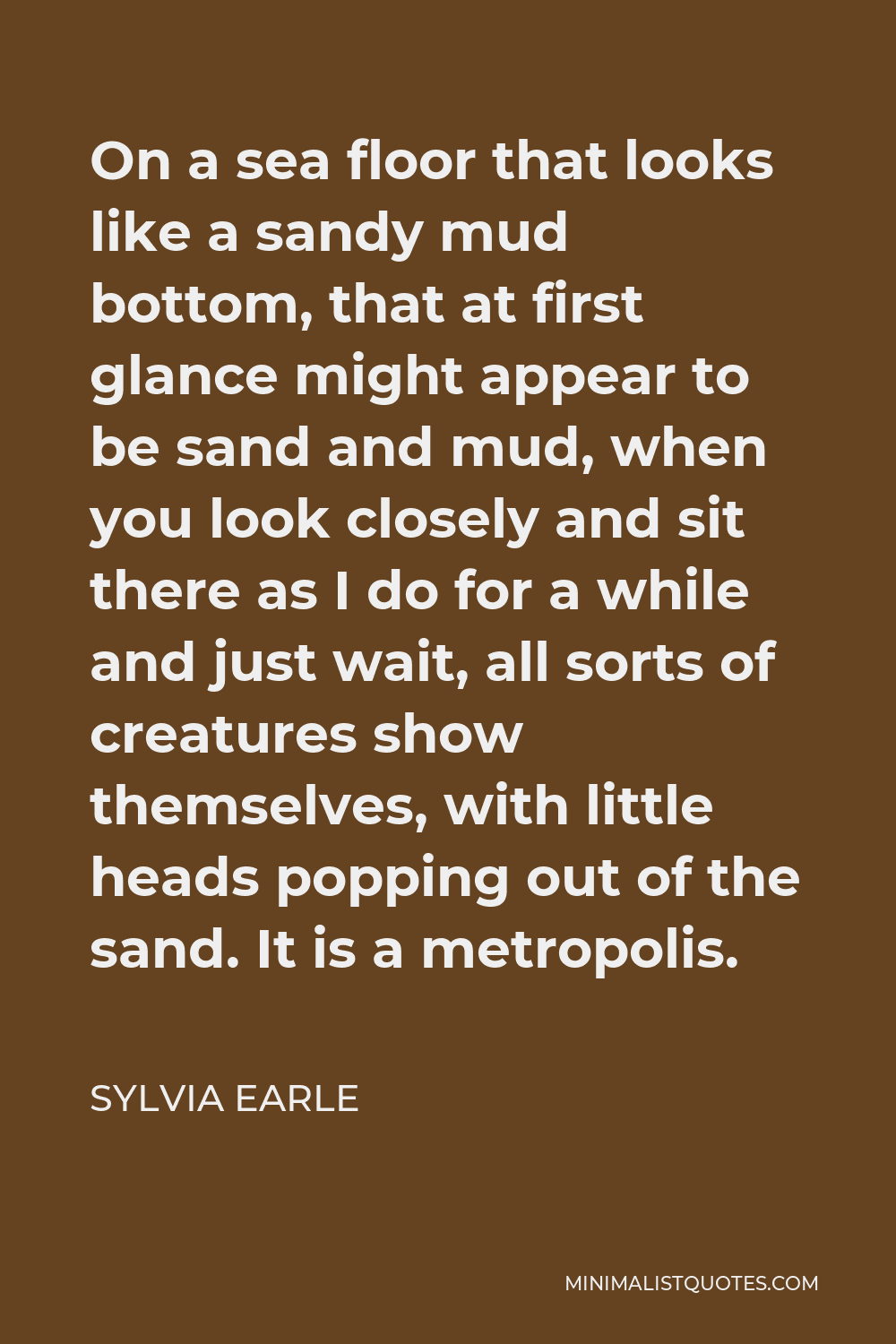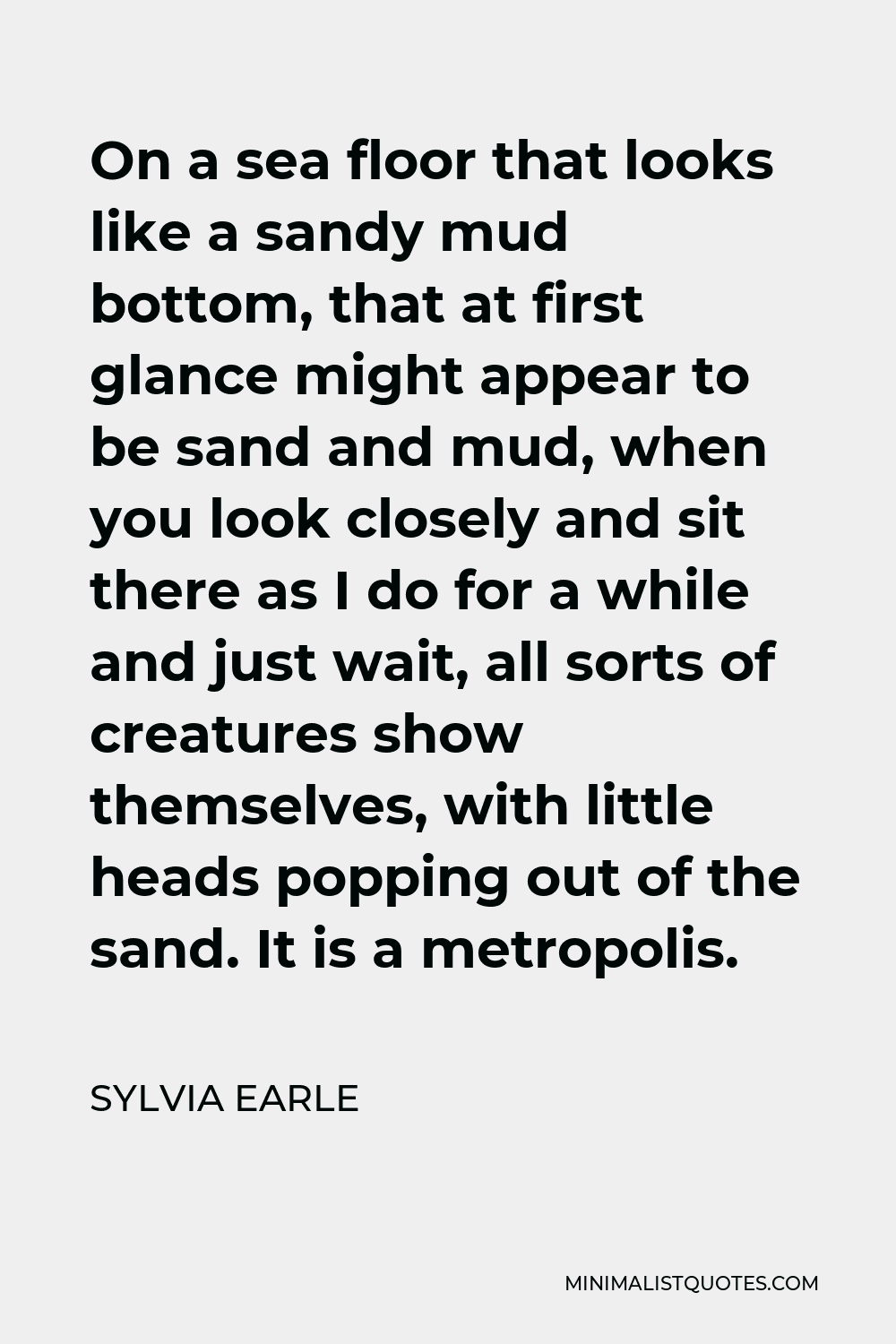The end of commercial fishing is predicted long before the middle of the 21st century.
SYLVIA EARLEOn a sea floor that looks like a sandy mud bottom, that at first glance might appear to be sand and mud, when you look closely and sit there as I do for a while and just wait, all sorts of creatures show themselves, with little heads popping out of the sand. It is a metropolis.
More Sylvia Earle Quotes
-





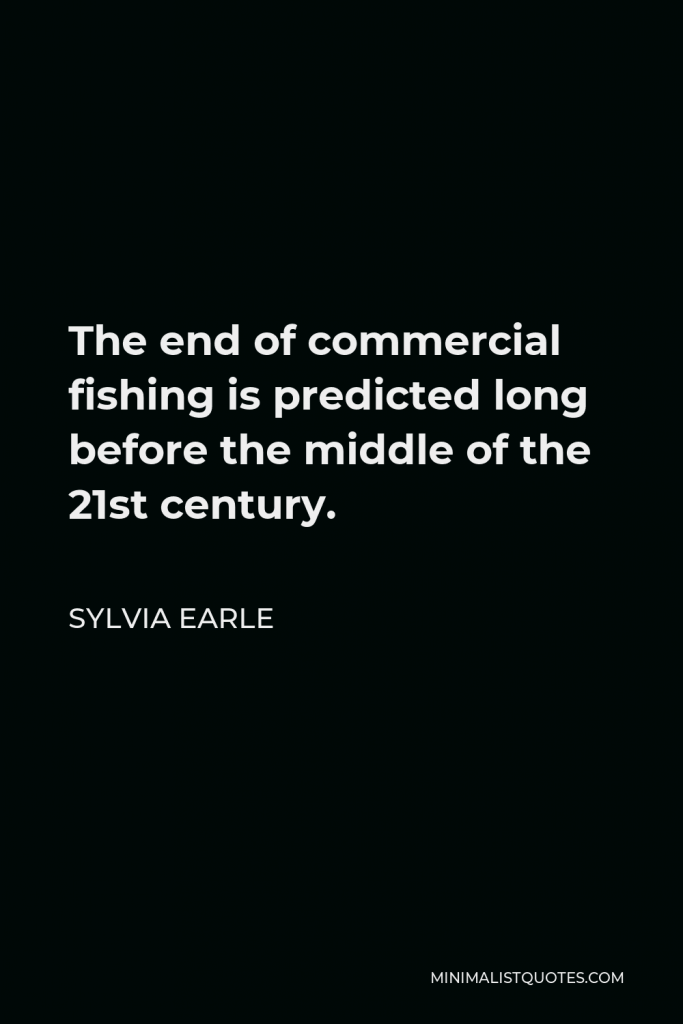

-





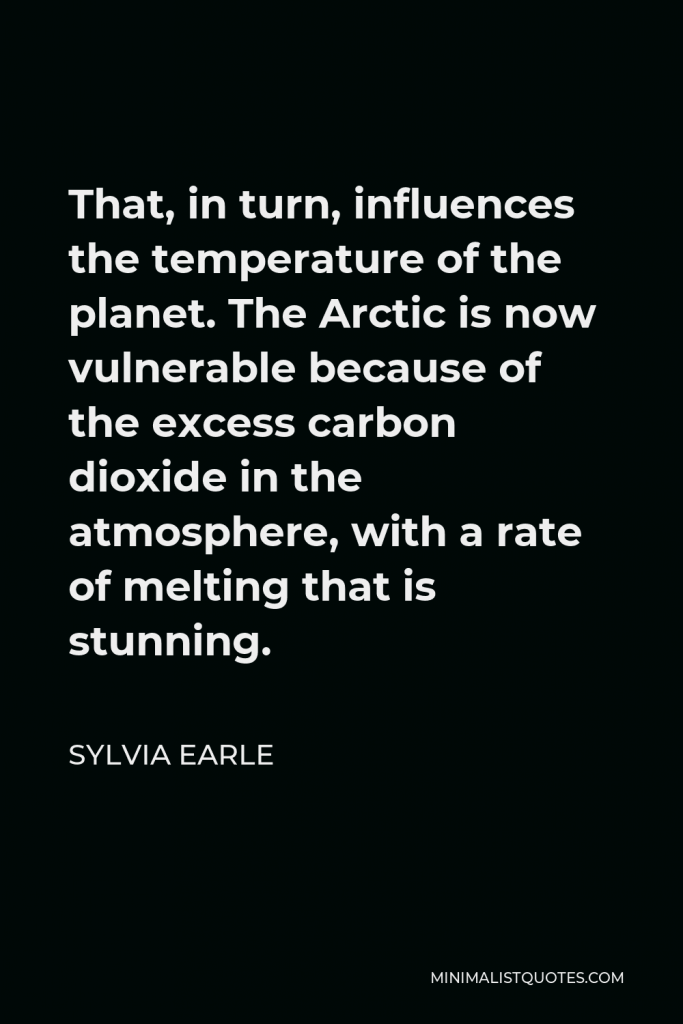

That, in turn, influences the temperature of the planet. The Arctic is now vulnerable because of the excess carbon dioxide in the atmosphere, with a rate of melting that is stunning.
SYLVIA EARLE -





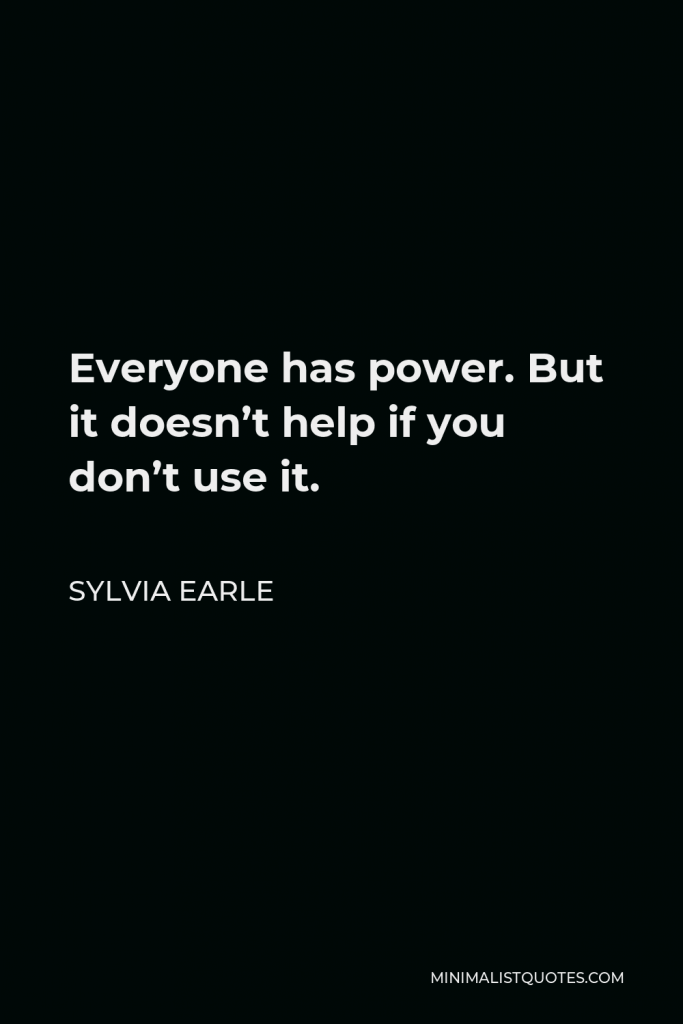

Everyone has power. But it doesn’t help if you don’t use it.
SYLVIA EARLE -







For heaven’s sake, when you see the enemy attacking, you pick up the pitchfork, and you enlist everybody you see.
SYLVIA EARLE -







America gains most when individuals have great freedom to pursue personal goals without undue government interference.
SYLVIA EARLE -





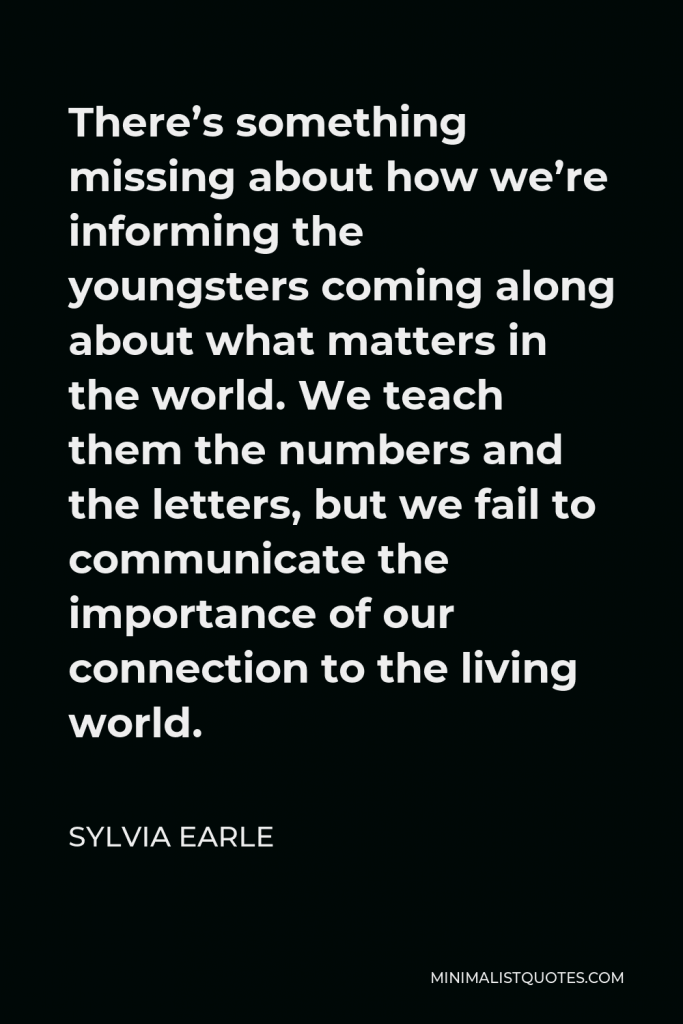

There’s something missing about how we’re informing the youngsters coming along about what matters in the world. We teach them the numbers and the letters, but we fail to communicate the importance of our connection to the living world.
SYLVIA EARLE -





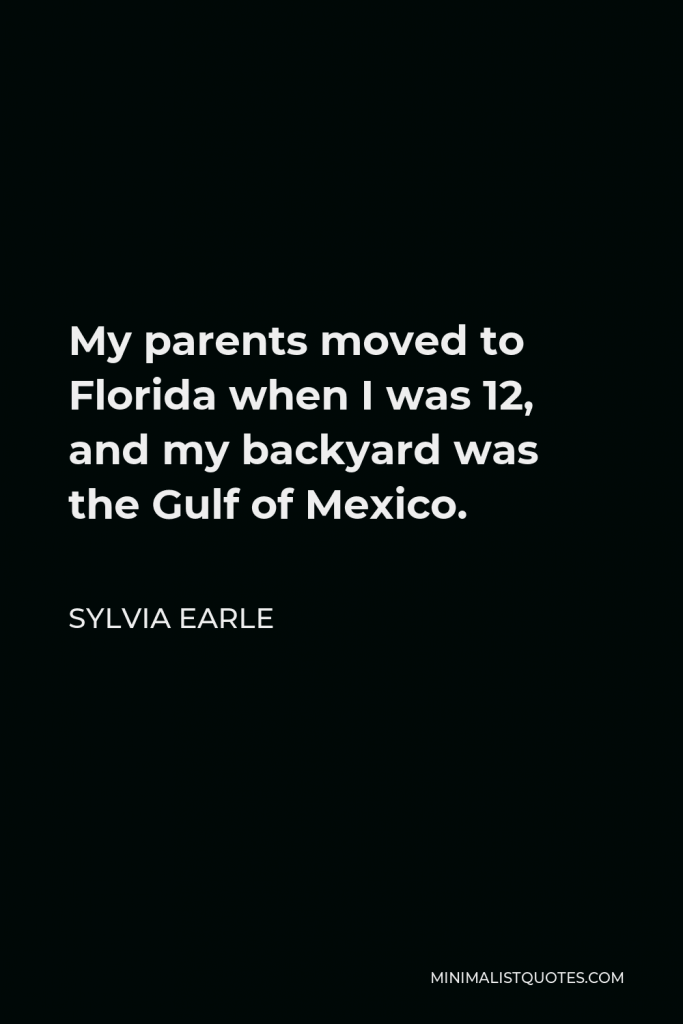

My parents moved to Florida when I was 12, and my backyard was the Gulf of Mexico.
SYLVIA EARLE -





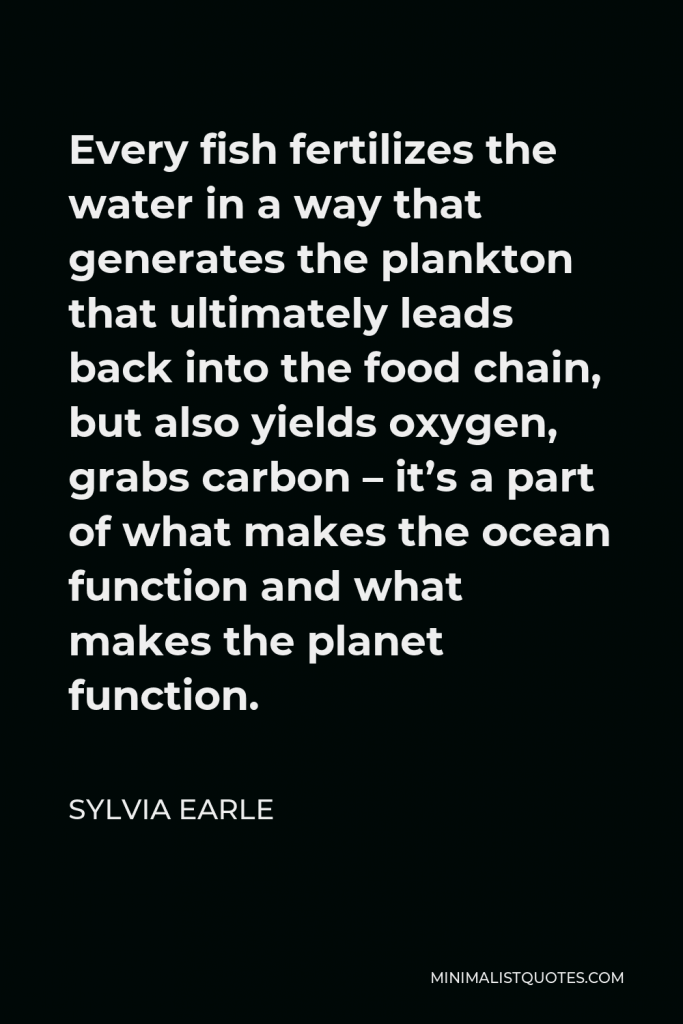

Every fish fertilizes the water in a way that generates the plankton that ultimately leads back into the food chain, but also yields oxygen, grabs carbon – it’s a part of what makes the ocean function and what makes the planet function.
SYLVIA EARLE -





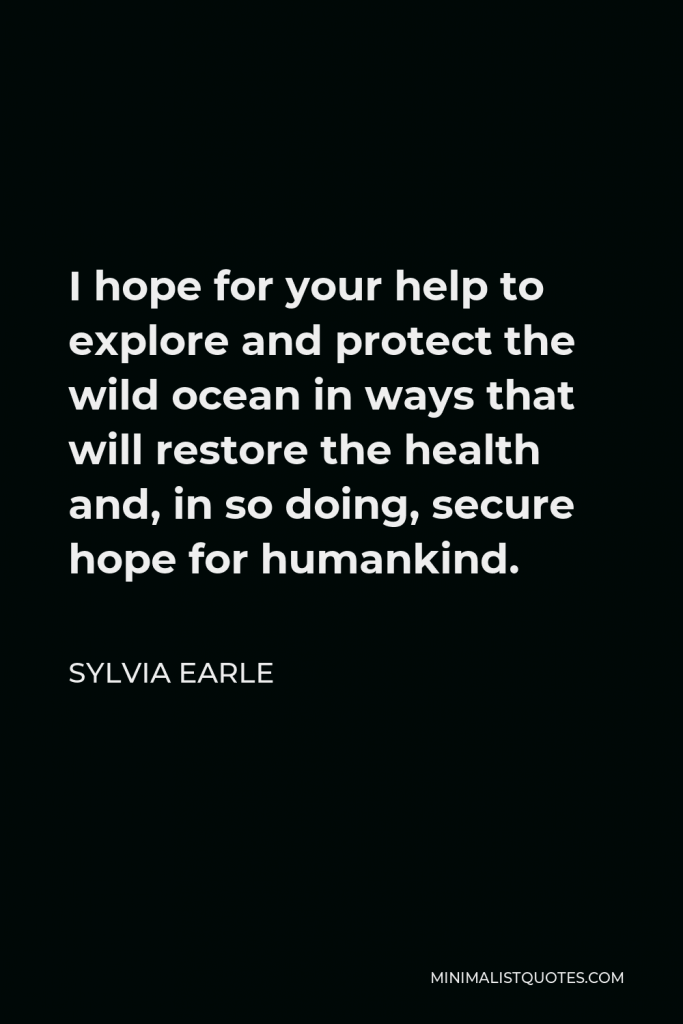

I hope for your help to explore and protect the wild ocean in ways that will restore the health and, in so doing, secure hope for humankind.
SYLVIA EARLE -





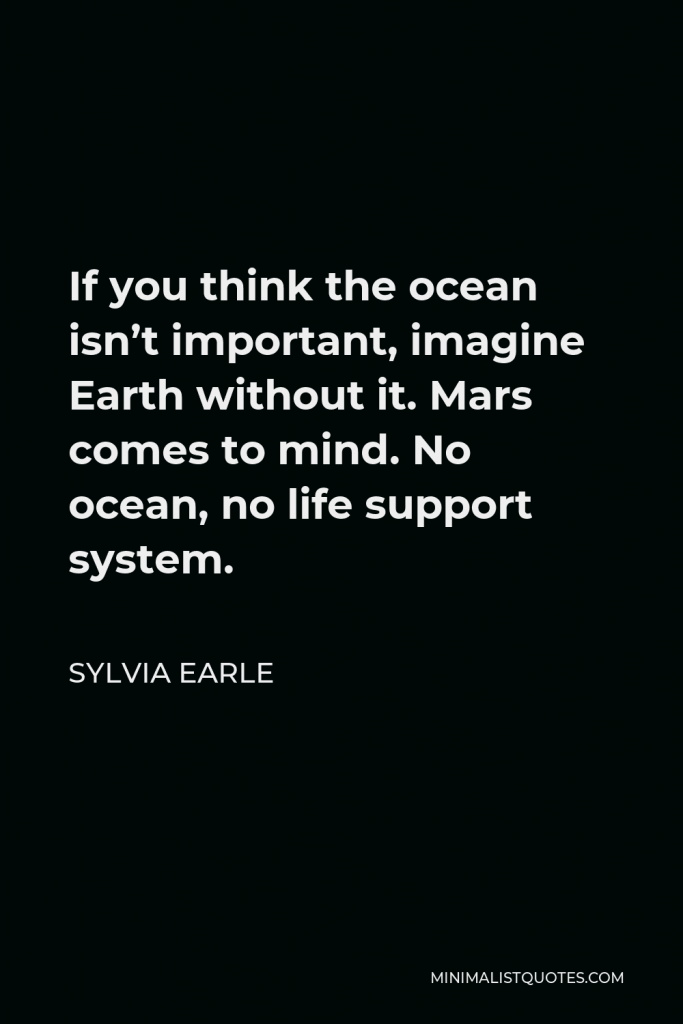

If you think the ocean isn’t important, imagine Earth without it. Mars comes to mind. No ocean, no life support system.
SYLVIA EARLE -





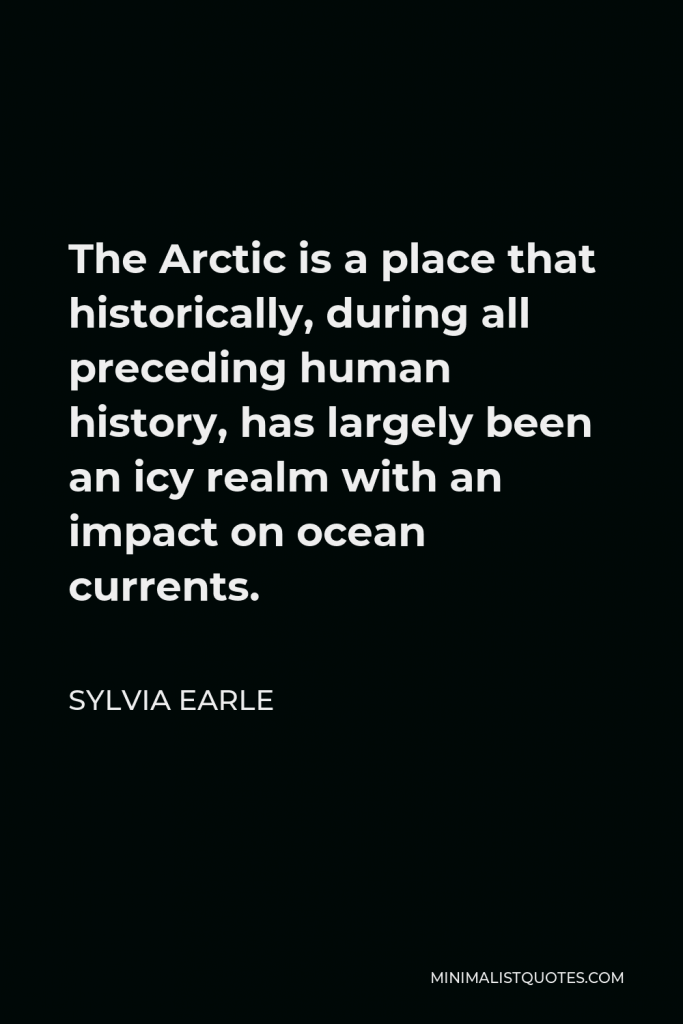

The Arctic is a place that historically, during all preceding human history, has largely been an icy realm with an impact on ocean currents.
SYLVIA EARLE -





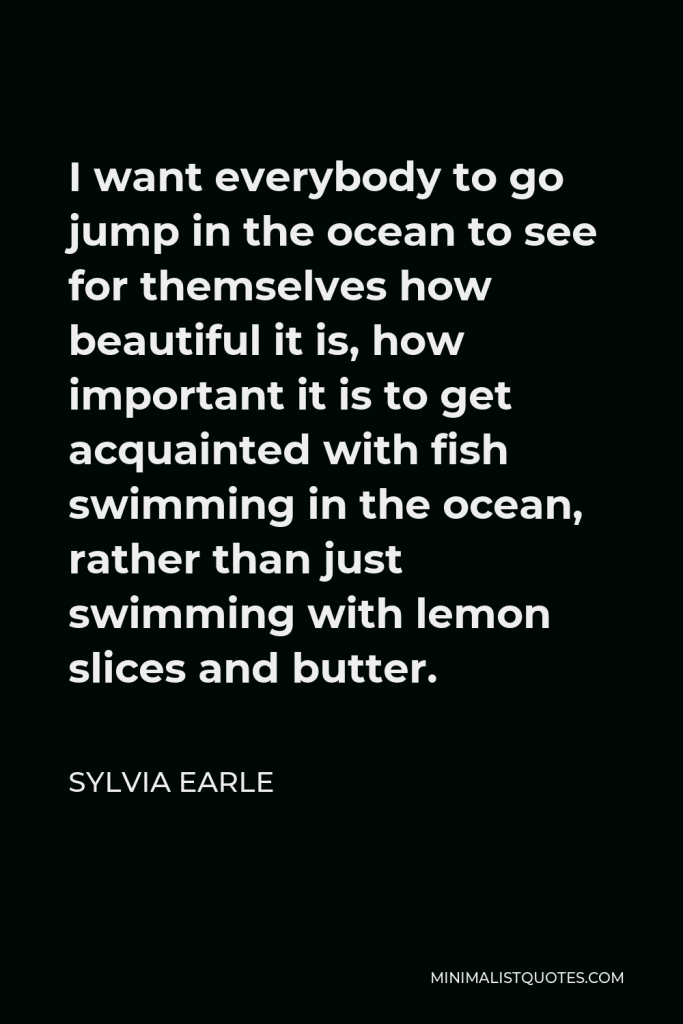

I want everybody to go jump in the ocean to see for themselves how beautiful it is, how important it is to get acquainted with fish swimming in the ocean, rather than just swimming with lemon slices and butter.
SYLVIA EARLE -





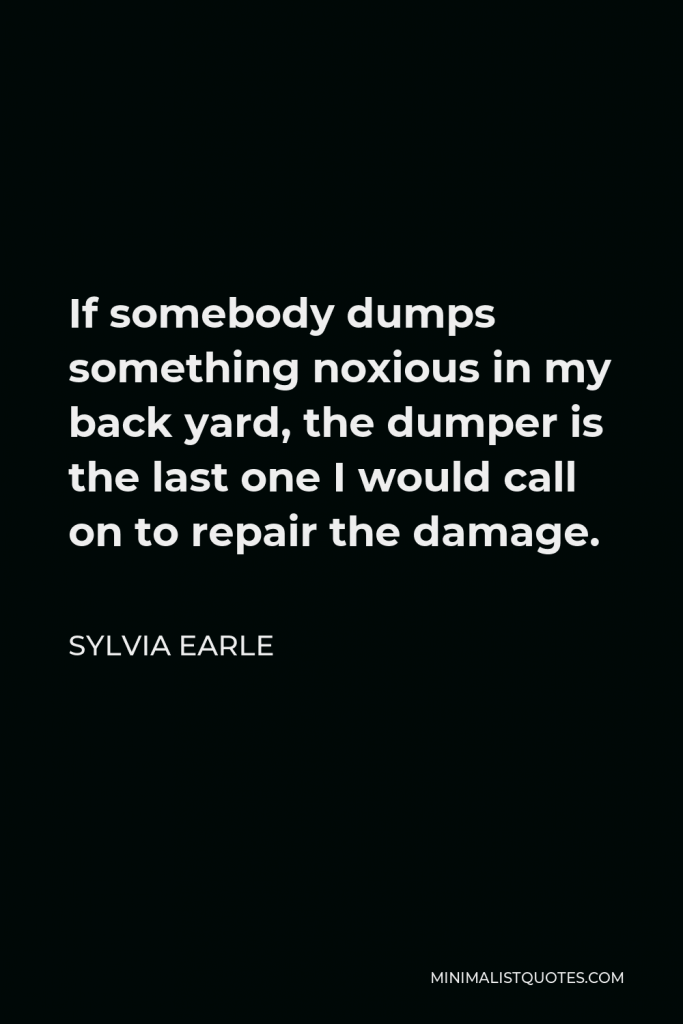

If somebody dumps something noxious in my back yard, the dumper is the last one I would call on to repair the damage.
SYLVIA EARLE -





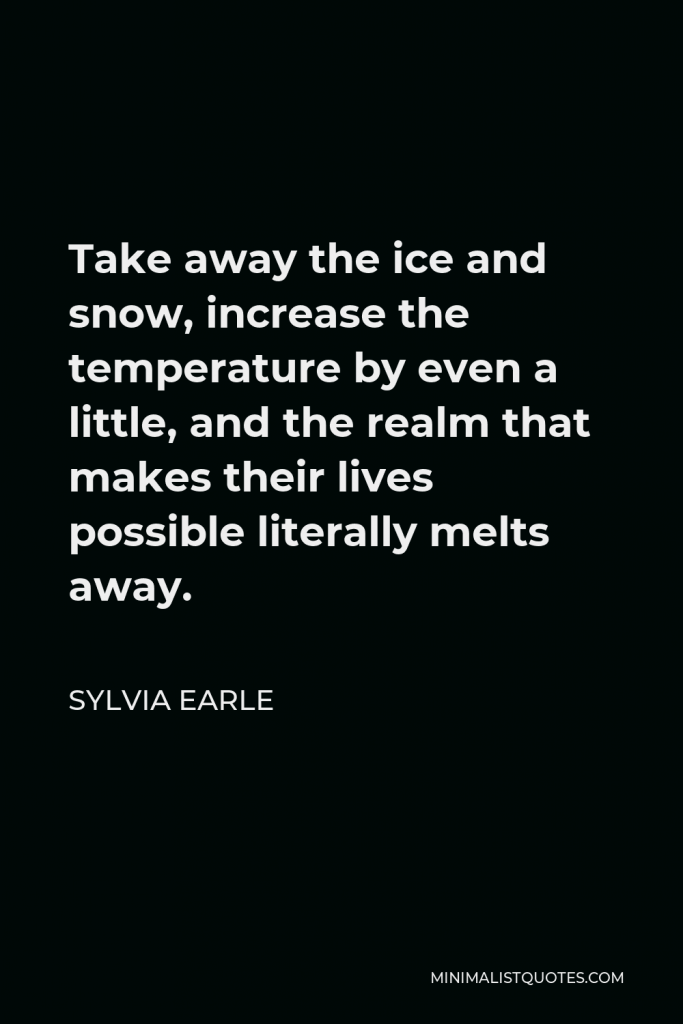

Take away the ice and snow, increase the temperature by even a little, and the realm that makes their lives possible literally melts away.
SYLVIA EARLE -





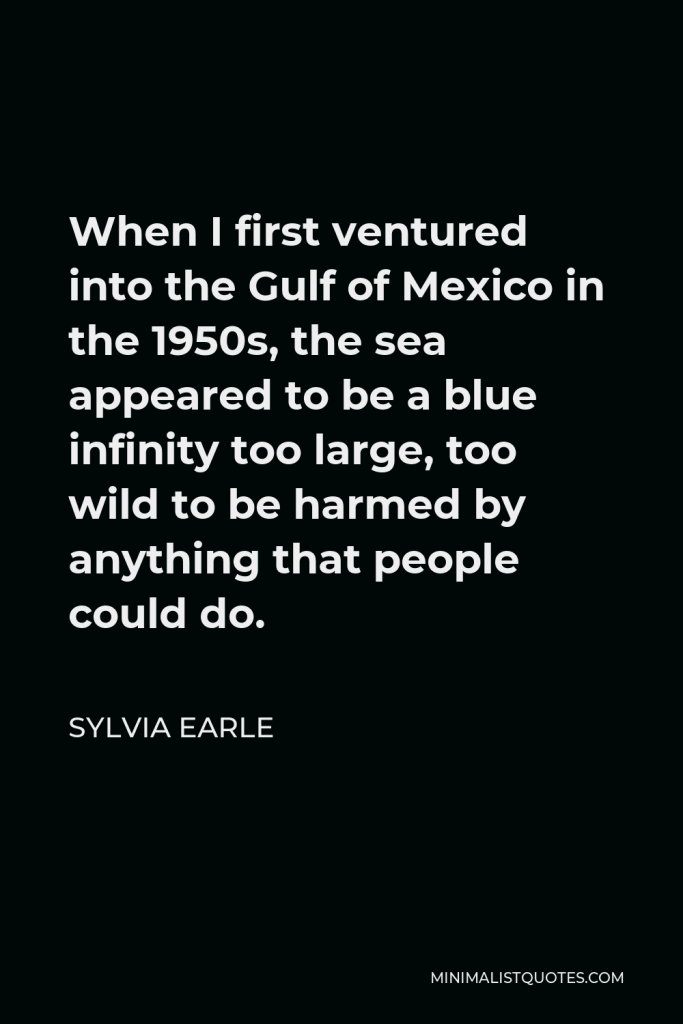

When I first ventured into the Gulf of Mexico in the 1950s, the sea appeared to be a blue infinity too large, too wild to be harmed by anything that people could do.
SYLVIA EARLE -





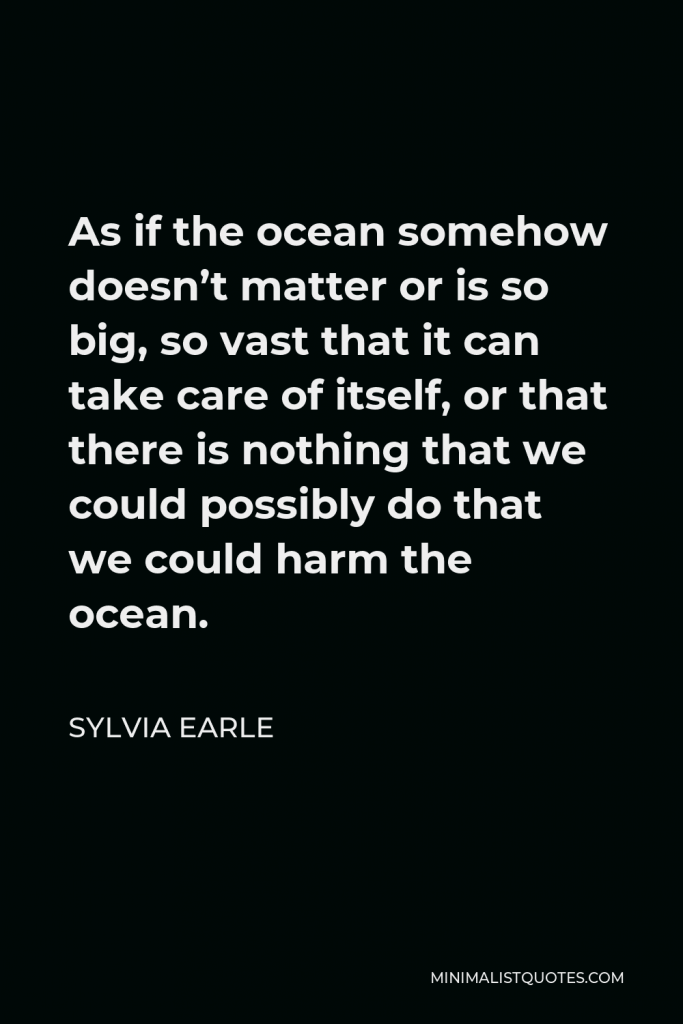

As if the ocean somehow doesn’t matter or is so big, so vast that it can take care of itself, or that there is nothing that we could possibly do that we could harm the ocean.
SYLVIA EARLE
